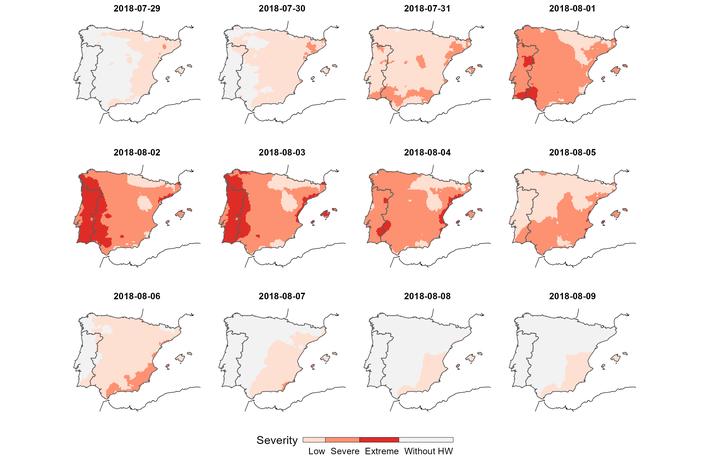Spatio-temporal evolution of heat waves severity and expansion across the Iberian Peninsula and Balearic islands

Abstract
In the current climate change scenario, heat waves have become one of the most concerning extreme climatic events, both because of their implications for human health and the economy, and because of their increase in intensity and frequency in recent decades. This work presents for the first time a climatological analysis of heat waves in the Iberian Peninsula and Balearic Archipelago (IPB) using the Excess Heat Factor index (EHF). This index considers the factor of intensity and the acclimatization process of human body in the study of heat waves. We focused on the intensity (also called severity), duration, frequency and spatial extension of heat waves in the IPB in the 1950–2020 period. The exceptional heat wave of August 2018 was approached in a similar way to further explore the usefulness of the EHF index. We found that the EHF index identified heat wave conditions 2 days earlier than indices that used only maximum temperatures. Results showed a significant increase in intensity, duration, frequency and spatial extension of heat waves for the whole IPB for 1950–2020 period. The average extent of heat waves increased by 4.0% per decade and the maximum extent by 4.1% per decade. This trend suggested a significant increase in human exposure, droughts, fire risk and energy demand in this region in the last decades.